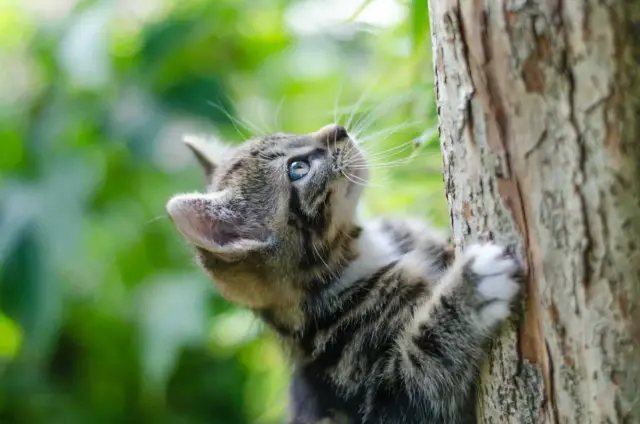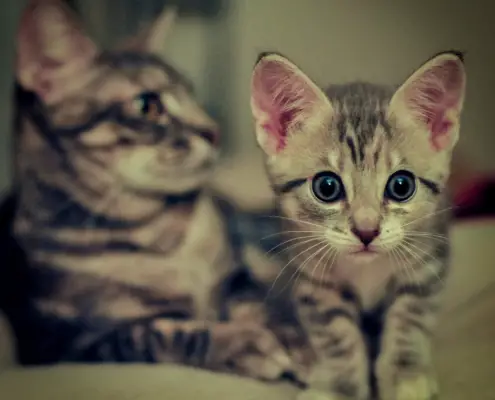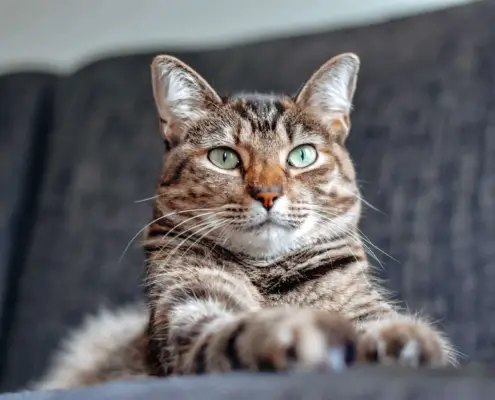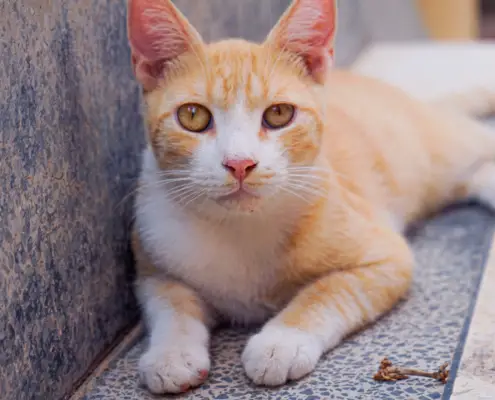
Cats bring joy and companionship to our lives, and as responsible pet owners, it is our duty to ensure their safety and well-being. While flowers can add beauty and fragrance to our homes and gardens, it’s important to be aware that some flowers can be toxic to cats. This article aims to unveil the hidden dangers of certain flowers for cats, providing valuable information on how to protect your beloved feline friend from flower poisoning.
Common Flowers that are Toxic to Cats
While there are numerous flowers that can be harmful to cats, it’s essential to be familiar with some of the most common ones. Lilies, for example, pose a significant threat to cats. All parts of the plant, including the leaves, flowers, and pollen, contain toxins that can cause severe kidney damage if ingested. Other flowers such as tulips, daffodils, and lily of the valley can also be toxic to cats, leading to symptoms like vomiting, diarrhea, and even cardiac abnormalities.
Symptoms of Flower Poisoning in Cats
Recognizing the symptoms of flower poisoning in cats is crucial for early intervention. Cats who have ingested toxic flowers may display signs such as drooling, loss of appetite, lethargy, difficulty breathing, and even seizures. It’s important to note that symptoms can vary depending on the type of flower ingested and the amount consumed. If you suspect your cat has been exposed to a dangerous flower and is exhibiting any of these symptoms, it is vital to seek immediate veterinary care.
Preventing Flower Poisoning in Cats
Prevention is key when it comes to protecting your cat from flower poisoning. One of the simplest and most effective ways to prevent such incidents is by keeping toxic flowers out of your home and garden. If you have indoor plants, ensure they are non-toxic to cats. When arranging flowers, make sure to choose cat-friendly varieties. Additionally, it’s important to keep flowers out of your cat’s reach, as cats are naturally curious and may be tempted to nibble on them. By taking these preventive measures, you can significantly reduce the risk of flower poisoning in your beloved cat.
Safe Alternatives to Dangerous Flowers for Cats
If you still want to have beautiful flowers in your home or garden without putting your cat at risk, there are plenty of safe alternatives available. Some cat-friendly flowers include roses, sunflowers, and snapdragons. These flowers not only add color and vibrancy to your space but also provide a safe environment for your furry friend. Furthermore, you can also consider using artificial flowers or opting for cat-friendly plants such as catnip or cat grass, which not only provide visual appeal but can also serve as a source of entertainment for your cat.
Creating a Cat-Friendly Garden
Designing a cat-friendly garden is a wonderful way to provide your feline companion with a safe and stimulating outdoor space. Start by incorporating plants that are non-toxic to cats, such as marigolds, petunias, or pansies. Install a secure fence to prevent your cat from venturing into neighboring gardens where they may encounter hazardous flowers. Additionally, consider adding vertical structures like cat trees or shelves to provide climbing opportunities. Creating a designated area for your cat’s litter box and providing shaded spots for relaxation are also essential. By carefully planning and designing your garden, you can create an environment that is both enjoyable and safe for your beloved cat.
Consulting with a Veterinarian about Flower Safety
When it comes to the safety of your cat, consulting with a veterinarian is always a wise decision. Your veterinarian can provide valuable guidance on which flowers are safe for your cat and help you identify potential hazards in your home or garden. They can also advise you on how to create a safe environment and recommend alternative options if you still wish to have flowers that pose a minimal risk. Regular check-ups with your veterinarian will ensure that your cat’s health is monitored, and any potential issues can be addressed promptly.
Recognizing the Signs of Flower Poisoning in Cats
Being able to recognize the signs of flower poisoning in cats is crucial for prompt intervention. If you suspect your cat has ingested a dangerous flower, watch out for symptoms such as vomiting, diarrhea, excessive drooling, lethargy, and changes in behavior or appetite. It’s important to remember that each cat may respond differently, and some may not display obvious symptoms until their condition has worsened. By being vigilant and observant, you can protect your beloved cat from the harmful effects of flower poisoning.
Emergency Steps to Take if Your Cat Ingests a Dangerous Flower
In the unfortunate event that your cat ingests a dangerous flower, it’s important to take immediate action. Contact your veterinarian or an emergency veterinary clinic for guidance, providing them with detailed information about the flower ingested and any observed symptoms. They may instruct you to induce vomiting or bring your cat in for immediate examination and treatment. It is crucial not to delay seeking professional help, as early intervention can greatly increase the chances of a positive outcome.
Keeping Your Beloved Cat Safe from Dangerous Flowers
Protecting your beloved cat from the hidden dangers of certain flowers is of utmost importance. By familiarizing yourself with the common flowers that are toxic to cats, recognizing the symptoms of flower poisoning, and taking preventive measures, you can create a safe environment for your feline companion. Choosing cat-friendly alternatives, designing a cat-friendly garden, consulting with a veterinarian, and knowing how to respond in case of an emergency are all essential steps in ensuring the well-being of your cherished pet. By taking these precautions, you can enjoy the beauty of flowers while keeping your beloved cat safe and sound.
Always prioritize the safety of your beloved cat. Consult with your veterinarian for personalized advice on flower safety and create a cat-friendly environment both indoors and outdoors. By taking these steps, you can ensure that your feline companion remains happy, healthy, and protected from the dangers of certain flowers.
If you enjoyed my article, I would appreciate you sharing it with your network.

Sima Ndlebe
Sima writes for CatBuzz. He is interested in Cats, Health and Fitness, and Entrepreneurship.
Published: 15 November 2023
Related Articles
Disclaimer
The content found on CatBuzz.org is presented on an "as is" basis and is intended for general consumer information and education purposes only. Any utilization of this information is voluntary and solely at the user's own risk.
None of the articles or content should be regarded as, or used in place of, veterinary medical advice, diagnosis, or treatment. The information provided on the website is purely for educational and informational intentions and should not be considered a substitute for professional guidance from a veterinarian or other qualified expert. The articles are designed to inform consumers about veterinary healthcare and medical matters that may impact their cat's daily life. It should be noted that this website and its services do not constitute the practice of any form of veterinary medical advice, diagnosis, or treatment. CatBuzz.org explicitly disclaims any liability for any direct or indirect damages or losses that may arise from the use of or reliance on the information contained within the content.
Consumers must consult a veterinarian, veterinary specialist, or another qualified veterinary healthcare provider when seeking advice regarding their cat's health or medical conditions. It is important not to ignore, avoid, or postpone seeking medical advice from a veterinarian or other qualified veterinary healthcare provider solely based on information obtained from this website. If you believe that your cat may be experiencing a medical issue or condition, it is imperative to promptly contact a qualified veterinary healthcare professional.



